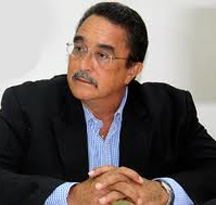St Lucia Prime Minister Dr Kenny Anthony has called for a `big conversation’ on the sagging Caricom economies and he also warned that the relationship between the region and the European Union (EU) is becoming increasingly one-sided.
In a hard-hitting address at the February 18-19 intersessional meeting of Caricom Heads of Government in Haiti, Anthony also issued a caution to Trinidad and Tobago – seen as the driver of the regional economy – that its manufacturers will not prosper if regional economies are anaemic.
He said that “the unvarnished truth is that our economies need each other to survive and prosper. Trinida-dian manufacturers cannot prosper if regional economies are anaemic with little pros-pect to return to high levels of growth. Trinidad and Tobago needs regional economies that are strong, vibrant and fully capable of financing demand for goods and services.”

He said, “We need a “big conversation” about the future of our economies, not just the future of Caricom. For that reason, I hope we can, at our summit in July, focus on the future of our economies. It would be an opportunity to chart a new paradigm for growth, review the role and performance of our regional institutions to determine how they can help in these times and better assist us to restore growth to our economies.”
Trinidad has often been seen by other countries in the region as reluctant to help lift poor-performing economies out of the doldrums.
Anthony pointed out that three regional economies are now in the embrace of the IMF and that recently the Caribbean Development Bank placed seven of the regional economies on the watch list for unsustainable debt.
Anthony also tackled growing concerns in the region about its relationship with the EU.
He said that another burning issue is the proposal by the European Union to introduce the concept of “differentiation” to determine aid and support to the African, Caribbean and Pacific (ACP) group of countries. He said that “differentiation” is just another word for the “graduation” of states. Anthony said that this could not come at a worse time for Caribbean economies, caught in the most debilitating economic crisis since independence.
He said that there can be no doubt that the Europeans are determined to apply “differentiation” since they have made it clear that they may refine the principle but there will be no retreat from its implementation.
Anthony said, “The truth is that our relationship with Europe is becoming even more and more “one sided” with Europe seemingly having its way at every turn, on every occasion. Europe had its way with bananas, sugar and the Economic Partnership Agreement (EPA). Now, it is about to have its way with “differentiation.” This issue must be fought resolutely, with all the diplomatic will and resources at our disposal, he urged.
“Europe as well as Caricom, will have to determine not just the diplomatic, but also the political value of the existing relationship.”
The St Lucian PM said that these and other developments are taking place at a time when Caricom countries’ economic vulnerabilities have been exposed for all to see.
He also focused on ties between Caricom and the ACP.
He referred to his attendance as Chair of Caricom at the ACP Conference of Heads of Government in Equatorial Guinea in December 2012, and said that Caricom has to rebuild its bridges with the ACP specifically, and Africa, generally. He said that Africa is yet to agree with the European Union to establish their version of the EPA. At the ACP conference, “there were constant references to the experience of the Caribbean to justify Africa’s caution in its attempt to reach an accord with Europe. The disappointment of members of the ACP in our Community was palpable and real.”
Anthony also addressed the re-structuring of the Caribbean Community Secretariat. While noting that he fully supported the initiatives to transform and empower the Caricom Secretariat, he said that the problems may well lie in the structure and underpinnings of the institutions of the Community which were created by the Revised Treaty of Chaguaramas. He said that reforming the Secretariat may not yield the results and that the leaders have to take a hard look at the institutions which were created.
He observed that these institutions, created by the Treaty have become bureaucratic, unwieldy and lethargic. He noted that applications for economic redress seem to take ages before a response is forthcoming. He concluded that it is little wonder that some say that we spend more time and resources in attending meetings rather than making decisions. He questioned, “Do we need all of these so called Councils and should they meet as frequently as they do?”





